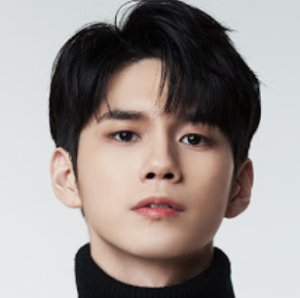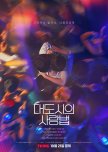Esta resenha pode conter spoilers
A GREAT SERIES!! MUST WATCH
The series dives deep into the nature and realism of love, tackling it in four distinct themes from the book:
1. Friendship (Platonic)
2. Family (Filial)
3. Romantic Love
4. Self
Unlike most BL stories I’ve come across, this one feels refreshingly authentic. There’s no idealized fantasy here; instead, it captures a raw take on love—especially for someone who’s still figuring out their identity.
It’s a great series (and a read) that explores a variety of issues, especially around romantic love and Go Young’s attachment struggles. Each of his three relationships reveals a new self-discovery, reflecting how much love mirrors our own self-understanding. In reality, romantic love often feels fleeting, needing patience, understanding, and a clear sense of self to know if it’ll truly last.
Go Young’s imperfection makes him relatable. His character is flawed, which somehow makes him even more compelling. Though each of his love interests is unique, he always ends up doing the same thing—falling headlong for someone he just met and letting his imagination run wild. In his first relationship, especially with Mr. Photographer, he over-invested despite not feeling much in return, causing Mr. Photographer to falsely hope and change himself for Go Young, which led to his own downfall.
"If obsession isn’t love, then I have never loved." This quote sums up Go Young perfectly. His intense infatuation with love itself drives him to act rashly, often in ways that harm both himself and others. His obsession with Mr. Fish went so far that he nearly ended his own life, showing how his view of love spiraled into something damaging.
As they say, "If you fall in love, fall for the person—not just the idea of being loved."
Then comes Gyu Ho. Compared to Mr. Fish, Gyu Ho’s relationship with Go Young feels plain and routine. Their lives revolve around daily work and chores; there’s none of the thrill or risk that marked Go Young’s time with Mr. Fish. They rarely go out or even make time for romantic moments. At first, Go Young feels they’re growing apart because of this lack of excitement, but after their breakup, he realizes Gyu Ho was his first true love—they actually matched in a way the others hadn’t. With Mr. Photographer, only Mr. Photographer was invested. With Mr. Fish, his commitment issues tore them apart.
In contrast, Go Young and Gyu Ho took the time to build something real. They embraced each other’s imperfections and learned to adjust together. They found that love itself isn’t flawless, and neither of them were either. But, despite their efforts, they kept breaking up repeatedly, and after a while, it’s hard to keep fixing something that’s been shattered too many times. One of the book’s most striking metaphors is a scene with a lantern: the lantern shines and rises but ultimately falls short and burns out—much like their love.
In the end, Go Young realizes that love is a journey, and we shouldn’t let romantic love define who we are. By the series’ end, all of his relationships have faded, but his friends, T-ARA and Mi Ae, remain. He sees that friendships can be forever, while romance sometimes can’t.
Ultimately, he learns that love is complex, that self-acceptance is vital, and that even if he doesn’t find a ‘forever’ partner, he has his friends—his true constants in life.
1. Friendship (Platonic)
2. Family (Filial)
3. Romantic Love
4. Self
Unlike most BL stories I’ve come across, this one feels refreshingly authentic. There’s no idealized fantasy here; instead, it captures a raw take on love—especially for someone who’s still figuring out their identity.
It’s a great series (and a read) that explores a variety of issues, especially around romantic love and Go Young’s attachment struggles. Each of his three relationships reveals a new self-discovery, reflecting how much love mirrors our own self-understanding. In reality, romantic love often feels fleeting, needing patience, understanding, and a clear sense of self to know if it’ll truly last.
Go Young’s imperfection makes him relatable. His character is flawed, which somehow makes him even more compelling. Though each of his love interests is unique, he always ends up doing the same thing—falling headlong for someone he just met and letting his imagination run wild. In his first relationship, especially with Mr. Photographer, he over-invested despite not feeling much in return, causing Mr. Photographer to falsely hope and change himself for Go Young, which led to his own downfall.
"If obsession isn’t love, then I have never loved." This quote sums up Go Young perfectly. His intense infatuation with love itself drives him to act rashly, often in ways that harm both himself and others. His obsession with Mr. Fish went so far that he nearly ended his own life, showing how his view of love spiraled into something damaging.
As they say, "If you fall in love, fall for the person—not just the idea of being loved."
Then comes Gyu Ho. Compared to Mr. Fish, Gyu Ho’s relationship with Go Young feels plain and routine. Their lives revolve around daily work and chores; there’s none of the thrill or risk that marked Go Young’s time with Mr. Fish. They rarely go out or even make time for romantic moments. At first, Go Young feels they’re growing apart because of this lack of excitement, but after their breakup, he realizes Gyu Ho was his first true love—they actually matched in a way the others hadn’t. With Mr. Photographer, only Mr. Photographer was invested. With Mr. Fish, his commitment issues tore them apart.
In contrast, Go Young and Gyu Ho took the time to build something real. They embraced each other’s imperfections and learned to adjust together. They found that love itself isn’t flawless, and neither of them were either. But, despite their efforts, they kept breaking up repeatedly, and after a while, it’s hard to keep fixing something that’s been shattered too many times. One of the book’s most striking metaphors is a scene with a lantern: the lantern shines and rises but ultimately falls short and burns out—much like their love.
In the end, Go Young realizes that love is a journey, and we shouldn’t let romantic love define who we are. By the series’ end, all of his relationships have faded, but his friends, T-ARA and Mi Ae, remain. He sees that friendships can be forever, while romance sometimes can’t.
Ultimately, he learns that love is complex, that self-acceptance is vital, and that even if he doesn’t find a ‘forever’ partner, he has his friends—his true constants in life.
Esta resenha foi útil para você?





